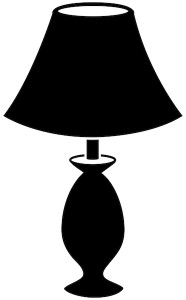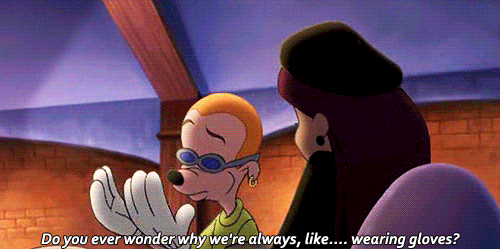by Naomi L. | July 8, 2013 | Blog, Word of the Week |
Word: irate
Pronunciation: ai-RAYT
Part of Speech: adjective
Definition: feeling or characterized by great anger
Source: Oxford Dictionaries
OK, so I decided to go with a simpler word this week. There isn’t too much I can say about the word “irate”, except that it’s on the more intense end of the “angry” spectrum. This is easy to understand, since the root of the word “irate” is “ire”, both of which come from Latin, respectively the adjective iratus (“angry”, “enraged”, “furious”) and the noun ira (“anger”, “rage”, “wrath”). Basically, it’s just another word to add to the long list of synonyms for “angry”.
When it comes to my writing, I prefer to use “irate” in scenes involving characters who are so enraged by the given circumstances, they’re practically seeing red. For example, the most recent use of the word in one of my narratives was in a love story involving a teenage couple whose relationship, for sociopolitical reasons, was considered taboo (yes, sort of like a modern version of Romeo and Juliet). In this case, “irate” was one of my words of choice to describe their parents’ reactions upon discovering they’d been secretly involved for several months. While I included various synonyms for “angry” in the scene, this one seemed especially fitting for the level of outrage that I wanted to portray, as it rests on a similar line of the spectrum as words like “infuriated” and “livid”. In my opinion, “irate” is a good word to keep in mind for descriptions of extremely angry characters; after all, you can never have too extensive a vocabulary when writing about emotions!
What are your thoughts on this word? Any suggestions for future “Word of the Week” featured words?
by Naomi L. | July 8, 2013 | Blog, Journal |
So last week started off with my blog’s first news update, and now today marks my first official journal post. Like the news posts, my journal won’t be a regular segment, but it’s where I’ll occasionally be sharing random thoughts that don’t quite fit into the other topics on my blog. Hope you enjoy!
 A few weeks ago, talented writer and blogger Jennifer M Zeiger nominated me for the Sunshine Blogger Award! I was honored to receive the notice, as the award is passed between bloggers who positively and creatively inspire others in the blogosphere. It’s wonderful to know I’ve been inspiring readers with my writing; that’s exactly what I hoped to achieve with my creative writing blog!
A few weeks ago, talented writer and blogger Jennifer M Zeiger nominated me for the Sunshine Blogger Award! I was honored to receive the notice, as the award is passed between bloggers who positively and creatively inspire others in the blogosphere. It’s wonderful to know I’ve been inspiring readers with my writing; that’s exactly what I hoped to achieve with my creative writing blog!
Now I’m supposed to share a little information about myself. Here goes…
Ten Facts About Me
1) I was born and raised in the United States, but I’ve been living in Brazil for several years now, making me fluent in both English and Portuguese.
2) I’ve been in love with creative writing since the fourth grade, and with reading since before preschool. Although I’ve wanted to be a writer since elementary school, I recently graduated from college with a Bachelor’s in Biology, and I plan to attend grad school soon to get my Master’s in Marine Biology.
3) My favorite literary genres are science fiction/fantasy, because I find it fascinating to imagine worlds that different in key aspects from ours; and romance, because I’ve always been intrigued by the theme of love.
4) Some of my greatest writing influences include the authors Roald Dahl (Charlie and the Chocolate Factory), J.K. Rowling (Harry Potter series), Eoin Colfer (Artemis Fowl series) and Marion Zimmer Bradley (The Mists of Avalon saga).
5) Five of my favorite movies are Finding Nemo, West Side Story, Forrest Gump, Beauty and the Beast and Tangled.
(Edit 7/12/13 – Oh yeah, one more favorite that I forgot to add to this list: How To Train Your Dragon!)
6) My greatest role models are my parents. They taught me almost everything I know about life and love, and they’ve been incredibly supportive of me and my writing. I feel so blessed to have been raised by such wonderful and intelligent people.
7) That “best friend” of mine whose been mentioned in a few of my blog posts? He’s also my boyfriend (and we’re in love).
8) Video games have been a major inspiration for my writing over the years, especially my fantasy stories.
9) One of the most common motifs in my writing is birds, possibly reflecting my lifelong desire to be able to fly. At least three of the novels I’m planning have strong bird references, as do a few of my short stories. Other motifs I like to throw into my writing are dragons and wolves.
10) I chose the pen name J.C. Wolfe for its potential catchiness as a unisex science fiction/fantasy author’s name. I hope my readers like it as much as I do!
Paying It Forward: My Ten Nominees
- The Musical Blog of Brent Gnecco (His blog isn’t actually active yet, but I feel he deserves a nomination for his inspirational music.)
- Best Ever Easy Recipes
- Emily Morgan Writes
- Vanessa Writes
- Lilica’s Place
- Writers Challenge 2013
- On Becoming a Writer
- Sonia G Medeiros
- Dragons and Snails
- My Forex Trading Room
For those nominated, this is how it works:
- Use the award logo in this post.
- Link to the person who nominated you.
- Share ten pieces of information about yourself.
- Nominate ten fellow bloggers who “positively and creatively inspire others in the blogosphere”.
- Leave a comment on the nominees’ blogs to tell them about the award.
Thanks again to Jennifer for the nomination, and to the nominees for continuing to add creativity and inspiration to the blogosphere!
By the way, if you haven’t yet, you should really check out Jennifer’s blog. Her stories are awesome! Thanks for reading!
by Naomi L. | July 5, 2013 | J.C. Wolfe's Writing, Poetry |
My love,
My life,
My music.
What would I do,
Who would I be,
How could I live
Without you?
I remember when I first saw you.
Your dark and light tones contrasting
Were a vision of perfect beauty.
The first time I heard your voice,
Singing sweet melodious notes,
You moved me to tears.
The first time I ever touched you,
I felt a spark like an electric wire,
And I knew I was finally whole.
Do you remember our song,
The first melody we played together?
It was sweet and gentle,
But there was passion in every note.
With every stroke,
A spark would ignite.
With every chord,
The fire in me grew.
With every measure,
I felt more alive,
And I know I felt life in you too.
For years you’ve enchanted me
With your spell.
Like a siren’s song
To a weary traveler,
Your sound has bewitched me
And lured me away
From the desolate banks
Of monotony
To ivory shores
Streaked with ebony
And singing of eternal bliss.
I could do nothing;
I would be no one;
I couldn’t live
Without you.
My music,
My life,
My love.
Pianoforte.
by Naomi L. | July 3, 2013 | Blog, Creative Writing, Tropes |
Confused about the title? Or maybe you’re confused about my asking if you’re confused about the title? Or maybe you’re confused about my asking if you’re confused about my asking if you’re confused about the title? Or maybe you’ve had enough if this nonsense and just want me to get to the point?
This week’s creative writing topic is an interesting trope of which I’ve become rather fond over the course of my own writing: a technique known as “lampshade hanging“, or simply “lampshading”. It’s an idea I first learned about when reading TV Tropes, and because of the way I often see it being employed in humorous writing, it’s quickly becoming one of my favorite devices in fiction. But you probably don’t care yet what I think about it; you’re just waiting for me to explain what it is so you can decide whether you’d like it too. Unless you went ahead and skipped to the next paragraph before reading this one and already realize how I’ve been incorporating the trope into this blog post. Am I right?

This is not the lamp you’re looking for…
OK, no more stalling. Lampshade hanging is a trick employed by writers to address any noticeable implausibility or obvious trope usage in a plot by drawing attention to it… and then moving on. But wait, why would you want to point out your story’s flaws in the first place? Counter-intuitive as it may seem, this exercise does have a few advantages:
- It proves you aren’t trying to get away with a questionable plot development by showing your audience that you’re also aware of the absurdity;
- It establishes a sense of realism in your story by demonstrating that your characters are just as skeptical about the implausibilities in the plot as the real-life people following it; and
- It’s a way to beat critics to the punch of deprecating you for the “mistakes” you already know are in your story.
Need an example? Here’s a rather brilliant one from my favorite moment in the 2000 Disney film An Extremely Goofy Movie, when Bobby Zimmeruski randomly realizes something strange about the world around him…

You know you’ve always wondered the same thing…
The best part? This question is almost immediately dismissed and never comes up again for the rest of the movie!
It should be noted that whenever a writer “hangs a lampshade” on a particularly glaring plot hole, it could be taken as a hint from their subconscious about the true extent of an unforgivable absurdity in an otherwise serious work. Of course, the technique can also be observed in use to the extreme in stories that are intended to be especially humorous and even self-aware, which (when done well) can be very entertaining (like in this product placement clip from the comedy TV series 30 Rock, which brilliantly demonstrates Tina Fey’s mastery of humor tropes). Mostly, though, it works just fine when used in moderation, kind of like a brief comic relief to complement the action in the rest of the story.
Bonus note: aside from “lampshades”, the practice is also known as hanging a “red flag”, “lantern”, or “clock”. The trope is referred to as “lampshade hanging” in my blog because it’s the most common term used on the TV Tropes website, which in turn attributes the phrase to Mutant Enemy.
While I don’t hang lampshades often in my fictional works, I do enjoy throwing them into my blog posts now and then, which I tend to use for humorous purposes as a personal reminder not to take myself or my writing too seriously (a flaw of which I’m painfully guilty, possibly evidenced by the fact that I don’t like to end phrases with prepositions). Hopefully my readers find them entertaining, or at the very least, tolerable. I do enjoy practicing lampshade hanging, and if you like to keep an element of comedy in your own writing, you might like to take it up too!
Now if you’ll excuse me, I must go do extensive research for the next blog topic on which my novice writer’s knowledge is still relatively limited. Thanks for reading!
by Naomi L. | July 1, 2013 | Blog, Word of the Week |
Word: pedantic
Pronunciation: pə-DAN-tik
Part of Speech: adjective
Definition: excessively concerned with minor details or rules or with displaying academic learning
Source: Oxford Dictionaries
I’m going to take a second here to be completely honest about something: I consider myself a little pedantic. Not about everything; mostly just when it comes to writing. I sometimes catch myself fussing over the littlest details about grammar and technique, and I haven’t been shy in the past about using advanced vocabulary in my stories to come across as an erudite writer (the fact that I just used a word like “erudite” should prove my case). Even my blog’s “Word of the Week” segment probably makes me seem pedantic. It’s a flaw of mine that I’ve had since at least my teen years, possibly stemming from my (admittedly unfounded) insecurities when I was growing up…
A person who’s “pedantic” (i.e. a pedant) is someone who tends to put extra thought into minor details or effort into proving their knowledge. The word possibly has roots in the first element of the Latin noun paedagogus (“pedagogue”, meaning “teacher”), which in turn comes from the Greek word paidagōgos (pais, paid- “boy” + agōgos “guide”).
Aside from myself, I would use a word like “pedantic” to describe a character like a particularly fussy teacher or an executive obsessed with showing off their advanced vocabulary and business skills. As far as I can tell, the word always seems to carry a negative connotation, and thus would be best considered a flaw as opposed to a neutral trait or even a strength. Pedantic isn’t something I’m particularly proud to be; your characters probably shouldn’t be either!
What are your thoughts on this word? Any suggestions for future “Word of the Week” featured words?





Recent Comments